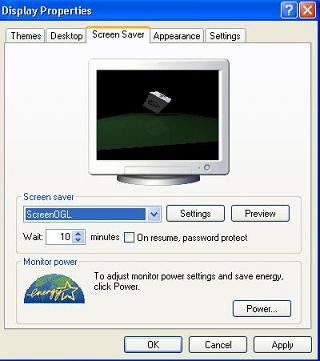1
General / Interest in Lua binding (also embeddable in C++ application)?
« on: February 21, 2015, 06:50:22 pm »
Hello,
I have began to develop an SFML binding to the Lua scripting language. Since this was originally only intended as a test for my general Lua to C++ binding library apollo, it is in a very rough shape right now (e.g. the graphics module is incomplete, there are probably lots of bugs, …). Anyway, it's already enough to run a Lua version of SFML's Pong example.
An executable demo (Windows + MSVC12 + Lua 5.2 with pong example and all required DLLs) for you to play around with is available here: https://dl.dropboxusercontent.com/u/1802511/os/lsfml-demo-lua52-msvc12.zip.
Run lua.exe pong.lua from the command line in the demo directory to start the pong example.
The source code is here: https://github.com/Oberon00/lsfml/
While it might currently not work (demo/alpha stage), this binding could run on Lua 5.1 ‒ 5.3 and is generally cross-platform (for MSVC12 and any platform with a recent clang or gcc at least) with a little effort put into it.
Also, as I teased in the title, a special feature of this binding would be (lacks a triviality right now to be actually usable) that it is embeddable in a C++ host application that uses my apollo library. This means that using this binding, you could easily add scripting to your SFML-based game.
Since I do not actually have an use for this myself right now (beyond demonstrating the abilities of apollo), I'm asking here if there is interest in this binding. If so, I may continue development.
I have began to develop an SFML binding to the Lua scripting language. Since this was originally only intended as a test for my general Lua to C++ binding library apollo, it is in a very rough shape right now (e.g. the graphics module is incomplete, there are probably lots of bugs, …). Anyway, it's already enough to run a Lua version of SFML's Pong example.
An executable demo (Windows + MSVC12 + Lua 5.2 with pong example and all required DLLs) for you to play around with is available here: https://dl.dropboxusercontent.com/u/1802511/os/lsfml-demo-lua52-msvc12.zip.
Run lua.exe pong.lua from the command line in the demo directory to start the pong example.
The source code is here: https://github.com/Oberon00/lsfml/
While it might currently not work (demo/alpha stage), this binding could run on Lua 5.1 ‒ 5.3 and is generally cross-platform (for MSVC12 and any platform with a recent clang or gcc at least) with a little effort put into it.
Also, as I teased in the title, a special feature of this binding would be (lacks a triviality right now to be actually usable) that it is embeddable in a C++ host application that uses my apollo library. This means that using this binding, you could easily add scripting to your SFML-based game.
Since I do not actually have an use for this myself right now (beyond demonstrating the abilities of apollo), I'm asking here if there is interest in this binding. If so, I may continue development.
 )not to be a showstopper, as long as (a) SFML is not loaded with LoadLibrary or dlopen and (b) application and library are compiled/linked with the same compiler with the same version, which must be done anyway.
)not to be a showstopper, as long as (a) SFML is not loaded with LoadLibrary or dlopen and (b) application and library are compiled/linked with the same compiler with the same version, which must be done anyway. (random screenshot found with Google).
(random screenshot found with Google). I finally found a very practical reason for camelCase!
I finally found a very practical reason for camelCase!